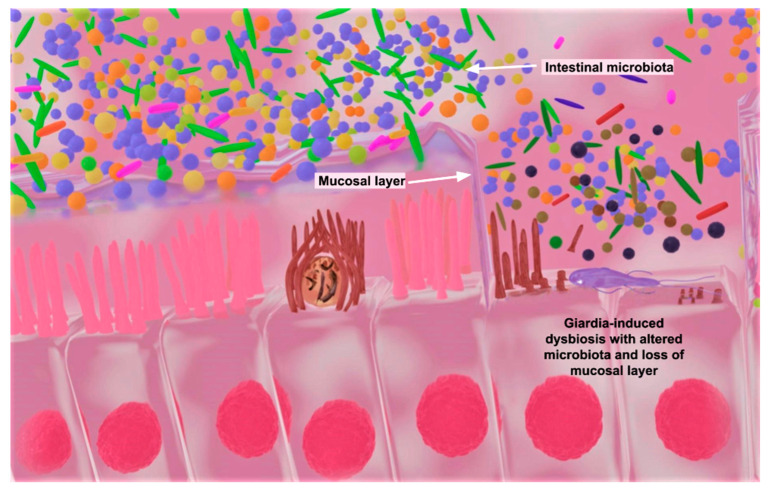Figure 2.
Blender software version 3.5.1-generated image showing a host infected with Cryptosporidium (left) and Giardia (right). Cryptosporidium and/or G. duodenalis infection could alter the gut microbiota ecological balance (colored particles) through dysbiosis in the mucosal layers of epithelial cells. Giardia duodenalis cysteine proteases, beta-N-acetylglucosaminidase, and beta-N-acetylgalactosaminidase can efficiently break down mucins, which are the molecular framework of the epithelial mucosal layers on the intestine. Histological evidence of the marked depletion of intracellular mucin and gastrointestinal mucosal injury have been reported in HIV-positive individuals with cryptosporidiosis [74].

